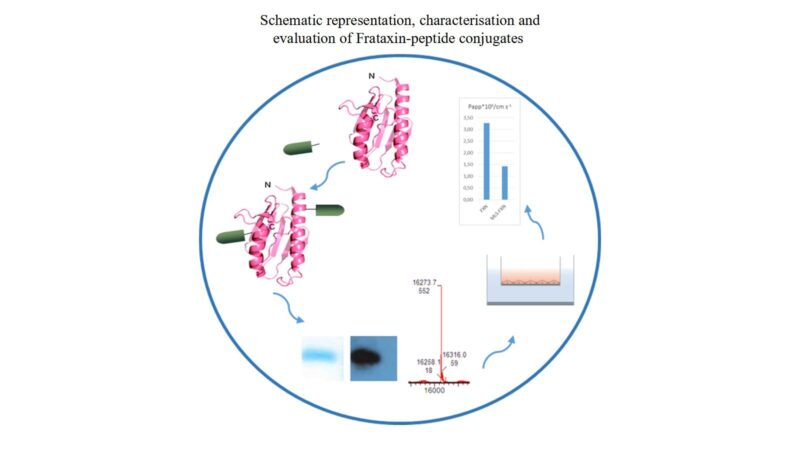
Friedreich’s Ataxia is a degenerative disease that affects one in 50,000 people. These patients have low levels of the protein frataxin, due to an inherited mutation in the gene that codes it. There is currently no cure. One of the options being studied is protein replacement therapy, which consists of administering frataxin to patients with a deficit or complete lack of this protein, so reversing the symptoms. However, in order to deliver frataxin to the central nervous system, it needs to cross the blood-brain barrier, a selective barrier that controls the transport of substances and protects the brain. Previous studies have shown that some peptides can enhance the transport of substances across the blood-brain barrier. In this study, we explored the binding of some of these peptides to the protein frataxin so as to assess whether it improved frataxin transport to the central nervous system.
Keywords: Friedreich’s ataxia; frataxin; blood-brain barrier.
Directed by: Macarena Sánchez Navarro
Leave a Reply